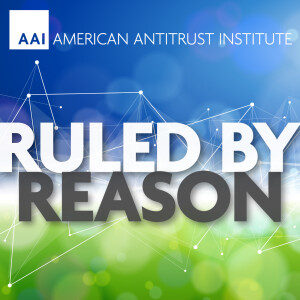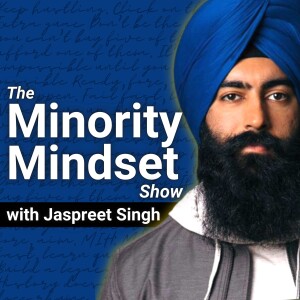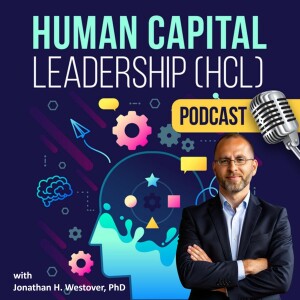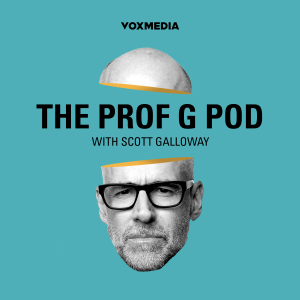

Episode List

Applying Computer Science Principles to Police Modern Cartels: A Conversation with Giovanna Massarotto
On this episode of Ruled by Reason, AAI Senior Counsel David O. Fisher chats with legal scholar Giovanna Massarotto about what antitrust law can learn from computer science, and particularly how understanding agreement algorithms can help courts and enforcers police algorithmic price-fixing and other illegal agreements under Section 1 of the Sherman Act. The conversation centers on Massarotto’s recent paper, Detecting Algorithmic Collusion, which examines the characteristics of agreement algorithms and how they can inform the “plus factor” analysis courts use to determine the likelihood of an illegal agreement. It begins with an introduction to the concept of a "distributed system," which is any network of computers that works together to perform a common task, the Bitcoin blockchain being one notable example (5:25). It then examines the Byzantine Generals Problem, a classic story illustrating how the nodes in a distributed network can reach an agreement despite the existence of one or more unreliable nodes, which has parallels to the formation of stable cartel agreements (9:09). Massarotto explains how agreement algorithms create stability, and what they can teach courts and enforcers about how algorithmic cartels function. Specifically, she describes how agreement algorithms use digital signatures, cryptography, broadcasting, leader election, and private channels to allow stable decision-making in distributed systems (21:50). Massarotto concludes that, while broadcasting and leader election are accounted for in the existing plus-factor analysis, courts and enforcers should add the use of digital signatures, cryptography, and private channels to the list of plus factors which may indicate the existence of an illegal agreement (30:40).

Experts, Daubert, and Judicial Gatekeeping: A Conversation with Edoardo Peruzzi and Christine Bartholomew
On this episode of Ruled by Reason, AAI Senior Counsel David O. Fisher chats with economist Edoardo Peruzzi and antitrust scholar Christine Bartholomew about the role of Daubert challenges in antitrust suits, focusing on the increasing role of Daubert as a gatekeeping device that may be hindering private antitrust enforcement. The conversation begins with an examination of Peruzzi’s recent working paper, which finds that Daubert challenges have become more frequent in antitrust cases and that, although plaintiffs’ experts are challenged more frequently, defendants’ experts are more often excluded (6:30). Bartholomew places Peruzzi’s findings within a context of increased procedural gatekeeping in antitrust cases, including the conflation of Daubert issues with the requirements of class certification, which she argues has wrongly turned Daubert into an outcome-determinative mechanism that is hindering private antitrust enforcement (22:20). The group then discusses potential solutions to this problem—including a different admissibility standard for economic testimony, increasing the use of court-appointed experts, and delaying the consideration of admissibility until the eve of trial—but finds none of them to be feasible. (30:15). Instead, they conclude that the solution lies in a return to the language of the Daubert trilogy and its goal of liberalizing the admissibility of expert testimony, which means keeping Daubert questions separate from the standards of class certification and rejecting efforts to treat the “fit” inquiry into a strict requirement of admissibility (40:05).

How the Agri-Stats Case Can Help Shape Treatment of Anticompetitive Information Exchanges: A Discussion Between Emily Bridges of the Food and Agriculture Impact Project and Professor Peter Carstensen
On this episode of Ruled by Reason, Emily Bridges of the Food and Agriculture Impact Project has a wide-ranging discussion with antitrust scholar Peter Carstensen about the role of information exchange in restricting competition in agricultural markets, focusing on how the DOJ’s case against Agri-Stats addresses that threat. After covering the oligopolistic nature of many agricultural markets (2:45), the two do a deep dive on why information exchange can be so harmful to competition (11:04). Professor Carstensen explains how the law on information exchange has evolved and how that history has led to unfortunate ambiguity about the applicable standard (17:10). Professor Carstensen then explains why information exchange has been a particular problem in agricultural markets. He describes how recent cases in this area, including both private actions and the DOJ’s case against the information aggregator, Agri-Stats, can play an important role in clarifying and strengthening enforcement against unjustified information exchanges (27:20). The discussion concludes with some thoughts about what we can expect from current trends in litigation over illegal information exchanges (48:50). Emily Bridges is a Research Attorney for the LL.M. Program in Agricultural and Food Law at the University of Arkansas School of Law, working with the Food and Agriculture Impact Project. Emily received a JD and an LL.M. in Agricultural and Food Law from the University of Arkansas School of Law. The Food and Agriculture Impact Project works with faculty, students, organizations and other educational institutions to provide policy and legal research, analysis and education, supporting the farm and food community with educational resources. Peter Carstensen is Professor Emeritus at the University of Wisconsin Law School and a Senior Fellow and Advisory Board Member at AAI. He previously served in the Antitrust Division at the Department of Justice. Professor Carstensen received the 2024 Alfred E. Kahn Award for Antitrust Achievement, presented by AAI in recognition of his outstanding contributions to the field.

Competition, Fairness, and Regulation in Food & Agriculture: A Conversation with Andy Green, Senior Advisor for Fair and Competitive Markets at the U.S. Department of Agriculture
In this episode of Ruled by Reason, AAI President Randy Stutz sits down with Andy Green, the Senior Advisor for Fair and Competitive Markets at the U.S. Department of Agriculture. The two discuss how Green found his way to the USDA after beginning his career as a corporate securities lawyer and developing policy expertise in the financial sector (2:46), the new role created for a competition advisor at USDA (9:25), USDA’s tools for implementing President Biden’s Executive Order on Promoting Competition (11:02), USDA’s coordination with the USPTO to strengthen patent quality and promote competition in seeds markets (29:25), USDA’s coordination with the Antitrust Division of the DOJ to enforce the unique standards of the Packers & Stockyards Act (35:57), the interplay between Sherman Act claims involving collusive price setting through intermediaries and the USDA’s pricing transparency rulemakings (41:48), and issues in food and agriculture that the next president of the United States will inherit (44:28).

How Exactly Does Common Ownership Harm Competition? A Conversation with Florian Ederer, Jerry S. Cohen Award Winner for Antitrust Scholarship
In this episode of Ruled by Reason, guest host Leslie Marx, the Robert A. Bandeen Distinguished Professor of Economics at Duke University’s Fuqua School of Business, sits down with Professor Florian Ederer to discuss his award-winning article, Common Ownership, Competition, and Top Management Incentives, 131 J. Pol. Econ 1294 (2023). Professor Ederer is the Allen and Kelli Questrom Professor in Markets, Public Policy & Law at Boston University’s Questrom School of Business. His article, co-authored with Professors Miguel Antón and Mireia Giné of the IESE Business School and Martin Schmalz of the University of Oxford Saïd Business School, won the 22nd Annual Jerry S. Cohen Memorial Fund Writing Award, presented on May 22 at AAI’s 2024 Annual Policy Conference, New Thinking on the Antitrust Treatment of Collective Action: Organized Labor, Countervailing Power, and Algorithmic Price Setting. The article helps explain the existing empirical evidence on the anticompetitive effects of common ownership and meaningfully advances our understanding of the underlying theory behind the effects. Among other things, Professor Marx and Professor Ederer discuss the theoretical and empirical background behind the theory of anticompetitive effects from common ownership (5:06), the mechanism by which common ownership actually leads to anticompetitive effects, notwithstanding that top managers and their delegees (rather than investors) control firms (12:13), and the implications of these findings for enforcers, policymakers, and future research (26:09). Antitrust scholarship that is considered and selected for the Jerry S. Cohen Award reflects a concern for principles of economic justice, the dispersal of economic power, the maintenance of effective limitations upon economic power or the federal statutes designed to protect society from various forms of anticompetitive activity. Scholarship reflects an awareness of the human and social impacts of economic institutions upon individuals, small businesses and other institutions necessary to the maintenance of a just and humane society–values and concerns Jerry S. Cohen dedicated his life and work to fostering.
Create Your Podcast In Minutes
- Full-featured podcast site
- Unlimited storage and bandwidth
- Comprehensive podcast stats
- Distribute to Apple Podcasts, Spotify, and more
- Make money with your podcast












